At-Will Employment
In Alaska, employment is generally considered "at-will," meaning either party can terminate the employment relationship at any time, unless there is a specific employment contract in place. Employees can be terminated for any reason that is not prohibited by federal, state, or local law.
However, courts may recognize claims for breach of implied contracts based on the language in an employee handbook if it specifically limits the right to terminate and the handbook was communicated to employees. Employers can avoid implied contract claims by having employees sign an at-will agreement and including a clear disclaimer stating the company's right to deviate from policies outlined in the handbook.
For comprehensive training on maintaining at-will employment, visit EmployerESource and explore our training webinars. These resources offer valuable information for business owners and managers seeking to stay informed and compliant.
For any questions about at-will employment and how to preserve this relationship, please contact EmployerESource. We’re here to provide expert guidance and support.
Deductions from Wages
Staying compliant with 8 AAC 15.160 is essential for avoiding penalties and maintaining fair payroll practices. A clear, legally compliant Employee Handbook ensures your business follows wage deduction laws and protects against disputes.
Under Alaska law, employers cannot deduct wages for lost, missing, or stolen property unless the employee admits responsibility in writing. Additionally, deductions for board and lodging must be reasonable, voluntary, and pre-approved in writing by the employee. Other wage deduction rules apply, covering security deposits, payroll deductions for third parties, and more.
Get peace of mind and stay compliant—purchase the Employer Handbook Program today!
For any questions or to receive a customized Payroll Deduction Form, please contact EmployerESource. We’re here to assist you in ensuring compliance and streamlining your processes.
Employees Records Access
Alaska law outlines employees' rights to examine their own personnel files and specifies allowable charges for copies.
We recommend reviewing your policy to ensure compliance with these regulations.
If you have any questions about this law, please contact EmployerESource. We’re here to assist you and ensure your practices remain compliant.
Final Pay
As an employer in Alaska, it’s essential to establish regular pay periods to comply with state wage laws (AS 23.05.140). If no agreement is in place, pay periods should be monthly or semi-monthly, as chosen by the employee.
Failing to meet these requirements, especially during terminations, could result in penalties. To ensure compliance and avoid costly mistakes, it’s crucial to have a clear pay period policy in your employee handbook.
Purchasing an Employee Handbook with a clear policy on regular pay periods will help protect your business and ensure transparency with your employees, keeping you compliant with Alaska's wage laws.
Contact EmployerESource for expert help in creating your employee handbook and ensuring compliance with wage laws.
Garnishments of Pay
Income Withholding Orders for Support: Employer Responsibilities in Alaska
As an employer in Alaska, it’s crucial to comply with AS 25.27.062 regarding Income Withholding Orders for child support. These orders require you to withhold a portion of your employee’s wages to fulfill their child support obligations. Here’s a quick overview of your responsibilities:
Immediate Withholding Orders: Withhold payments directly from the employee’s wages and submit them to the relevant agency.
Employer’s Duty to Comply: Start withholding immediately upon receipt of the order, and ensure payments are sent to the agency within seven business days.
Employer Protection Against Retaliation: Employers cannot discharge, discipline, or refuse to employ an individual based on receiving an income withholding order. Violation could lead to penalties up to $1,000.
Notification and Documentation: You must notify all relevant parties of the withholding order and keep accurate records.
Why You Need an Employee Handbook with This Policy
To protect your business and ensure compliance, it’s important to have a clear, documented policy on income withholding orders. An Employee Handbook with a comprehensive policy helps you:
Stay compliant with state regulations.
Avoid costly penalties and legal risks.
Clearly communicate your obligations and processes to employees.
For more guidance on implementing this policy, or to get the paperwork you need, contact EmployerESource. We’re here to help you ensure your business stays compliant with all Alaska state laws.
Jury Duty Leave
Alaska employers are required to grant employees time off for jury duty service. While payment for this time off is not mandatory, employers must ensure that employees are not penalized or disciplined for fulfilling their legal duty.
The Employer Handbook Program provides a clear, compliant policy to help you navigate jury duty obligations while protecting your business from potential disputes.
Ensure compliance and clarity—get your Employer Handbook today!
Meal Periods and Breaks
Alaska does not have specific laws regarding meal periods and breaks. While federal law does not require employers to provide them, it does mandate that any break under 20 minutes must be paid, while meal periods of 30 minutes or more do not require payment.
Without a clear policy in place, misunderstandings can arise, leading to disputes or compliance issues. The Employer Handbook Program ensures your business has a well-defined policy that aligns with federal regulations and company practices.
Stay proactive and protect your business—get your Employer Handbook today!
For any questions or clarification regarding this law, please contact EmployerESource. We’re here to assist you and ensure compliance with all applicable regulations.
Minimum Wage
Alaska’s Minimum Wage will increase from $11.91 to $13.00 effective July 1st, 2025. This change also affects salaried employees who are exempt from overtime requirements under Alaska Statute 23.10.055(b). The minimum salary for these workers will increase from $952.80/week to $1,040.00/week.
Contact EmployerESource with any questions about this law.
Overtime
Alaska Overtime
Employer Training on Overtime in Alaska
As an employer in Alaska, it is essential to understand your responsibilities regarding overtime and minimum wage regulations to ensure compliance with the Alaska Wage and Hour Act. Below is an overview of key aspects you must be aware of:
Overtime Requirements:
Maximum Hours: Employees cannot work more than 40 hours in a week or more than 8 hours in a single day unless compensated for overtime.
Overtime Pay: When an employee works beyond the standard 40-hour workweek or 8-hour day, they must be compensated at a rate of one and one-half times their regular pay.
Minimum Wage and Overtime Exemptions:
Certain categories of employees are exempt from receiving minimum wage or overtime pay. These exemptions include, but are not limited to:
· Agricultural Workers
· Employees in Nonprofit Religious, Charitable, or Educational Organizations
· Government Employees
· Certain Professional Roles (Executive, Administrative, and Professional Exemptions)
· Emergency Medical Volunteers or Ski Patrol Members
· Independent Contractors (e.g., cab drivers, certain motor vehicle dealers)
Additional Overtime Exemptions:
In addition to the categories above, the following employees may not be required to receive overtime:
Employees of small businesses (fewer than 4 employees)
Agricultural workers and certain employees in mining, forestry, and related fields
Employees with flexible hour work plans or under collective bargaining agreements
Recordkeeping Requirement:
Employers must maintain payroll records for at least three years for each employee. This includes accurate documentation of all hours worked and overtime paid.
Conclusion
Understanding and complying with Alaska’s overtime and minimum wage laws is critical to maintaining a lawful business operation. Ensure that your employees are paid correctly for all hours worked and keep accurate records to avoid penalties. Implementing clear policies regarding overtime and exemptions in your employee handbook can help streamline compliance and prevent legal issues.
If you need additional guidance or help with paperwork to ensure compliance with Alaska’s wage laws, contact EmployerESource. Our team can assist you in drafting clear policies for your employee handbook and ensuring that your business meets all state requirements.
Uniforms Tools Guidelines
Alaska labor laws prohibit employers from requiring employees to purchase uniforms or equipment if they are mandated by safety codes or if the nature of the business necessitates their use and the items are distinctive or not suitable for normal social activities. However, employers may require a security deposit for issued uniforms or equipment, as long as it does not exceed the item's cost or reduce wages below minimum wage or overtime requirements.
Without a clearly defined policy, misunderstandings can arise, leading to compliance risks. The Employer Handbook Program ensures your policies align with legal requirements while protecting your business interests.
Avoid disputes and stay compliant—get your Employer Handbook today!
Vacation Leave
Employers in Alaska are not legally required to provide vacation benefits to employees. However, if a company offers vacation, personal time off (PTO), or holiday leave, it must adhere to the policies it establishes.
This makes it essential for businesses to adopt well-crafted, clear, and compliant vacation policies.
EmployerESource specializes in developing customized vacation and leave policies tailored to your business needs. Let us help you create policies that align with your goals while ensuring compliance and clarity for your employees.
Contact us today to get started!
Voting Leave
Alaska law requires employers to provide paid time off for voting unless the polls are open at least two hours before or after an employee’s shift. In such cases, employees are expected to vote during those periods without pay.
If you have any questions about this law or need assistance, please contact EmployerESource. We’re here to offer guidance and ensure your practices remain compliant.
Wage Reduction
Providing employees with clear and timely wage payment notices is essential for maintaining compliance with Sec. 23.05.160. Employers should establish standardized processes to ensure all wage-related information is communicated effectively and documented properly to avoid disputes or legal penalties.
Review your employee handbook to ensure your practices comply with these regulations.
If you have any questions or need assistance, please contact EmployerESource. We’re here to provide guidance and help ensure your practices remain compliant.
Wages in Dispute
In a wage dispute, employers must provide written notice of owed wages, pay the undisputed amount promptly, and may withhold disputed amounts until resolved.
For any questions or clarification regarding this law, please contact EmployerESource. We’re here to assist you and ensure compliance with all applicable regulations.


